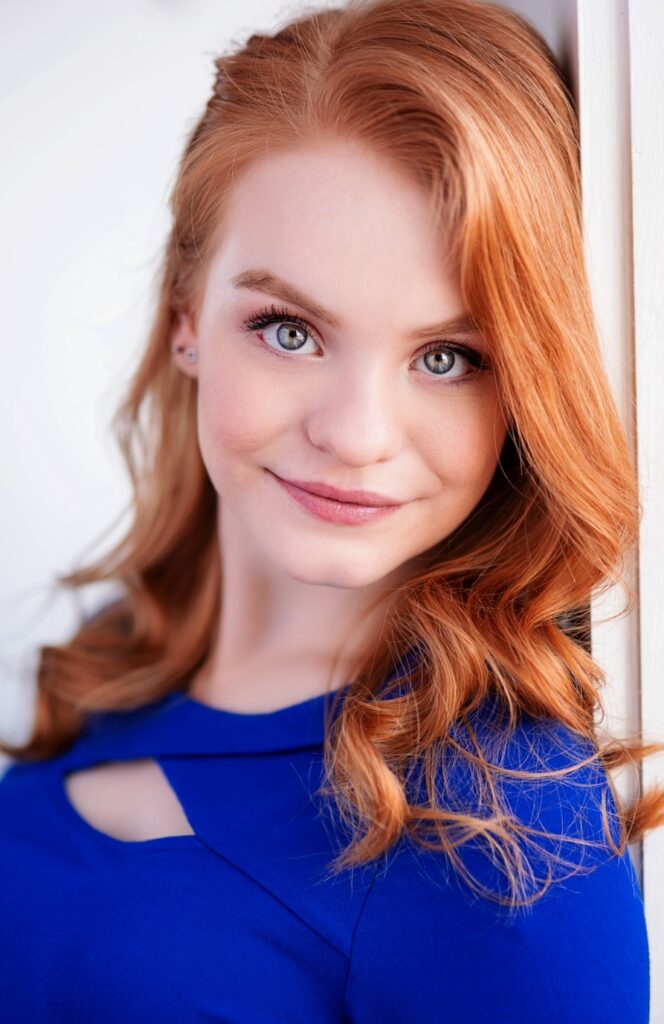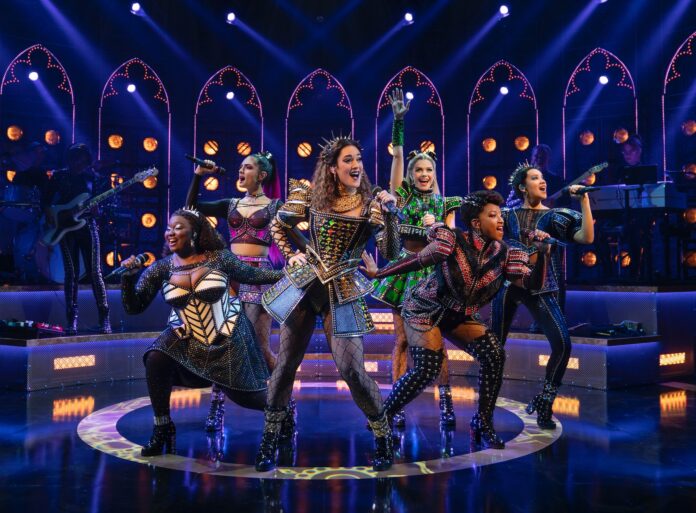Taking an historical moment and flipping the traditional narrative has become a theme in the world of musical theater. Lin Manual Miranda’s “Hamilton,” in which actors of color rap the story of the American Founding Fathers, and a revival of Sherman Edwards’ and Peter Stone’s musical “1776” featuring all women, trans and nonbinary performers, are two such examples. The musical “SIX” certainly falls into that category.
In the show, the six wives of Henry VIII sing their own stories in the form of a pop talent contest to see who underwent the most suffering while married to the 16th century king. They establish that whoever was worst off as Henry’s wife, will lead the band. “SIX” is running from March 21 to April 9 at the Kimmel Cultural Campus’ Academy of Music.
In the show’s Boleyn Tour, which is currently performing in Philly, as well as in other productions of the show, at least one actor identifies as queer and/or nonbinary. Aryn Bohannon, who identifies as bisexual, is one such actor. As an alternate in the cast, she plays either Anne Boleyn, Jane Seymour, or Catherine Howard when the moment calls.
“I think there’s a great intersectionality [in the show], especially because not only is the show completely made of women, but also women-identifying and nonbinary individuals,” Bohannon said. “I think it’s wonderful to be a part of something so diverse and inclusive, just because the opportunity, unfortunately even to this day, is not given to a lot of performers, and a lot of queer-identifying and people of color in the artist industry.”
In chronological order, the wives of Henry VIII were Katherine of Aragon, Anne Boleyn, Jane Seymour, Anne of Cleves, Catherine Howard, and Katherine Parr. The show’s narrative around the six women exists in relation to how their marriages, and subsequently their reigns and lives, ended: “divorced, beheaded, died, divorced, beheaded, survived.” However, Toby Marlow and Lucy Moss, who wrote the music, lyrics and book for “SIX,” changed the conception of the queens, even if only through a semi fictionalized story.
Moss said in an interview with Smithsonian Magazine, “what we were interested in doing was reframing the way that women have been perceived in history and telling their side of the story.”
Despite the show’s diversity and challenging of history, Bohannon sees a parallel between bisexual erasure in modern society and the historical effacing of the queens.

“As somebody who identifies as bisexual, I think erasure is a big part of my identity, unfortunately,” she said. “It has been for a long time, even with my own thoughts on my own sexuality because of the way society has treated bisexuality. I think that same erasure dictates a lot of what has been thrust upon the women and how they are degraded down to their sexuality in terms of being married to the same man. I think a lot of that prejudice is relatable within my own identity.”
Not only are the queens best known in relation to their marriages to Henry, most of the public knowledge about them centers on the circumstances around their divorces, deaths and executions. Henry divorced Katherine of Aragon, his first wife, in 1533 because he was in love with one of Katherine’s ladies in waiting, Anne Boleyn. He claimed that since Katherine had previously married his brother, who had died, their marriage was null and void. After Boleyn married Henry and had a daughter with him (the future Elizabeth I), Boleyn had some element of power. But Henry accused her of adultery based on minimal evidence, and had her arrested and beheaded.
“SIX” reinstates an empowering narrative to historical women whose stories took a back seat to a patriarchal lens. After seeing the show, Bohannon hopes audiences take away the idea that “you’re in charge of running and owning your own narrative, and to not let anybody’s words or prejudice take it away from you.” As for the importance of LGBTQ representation in the arts, Bohannon said, “I think it’s incredibly important to raise voices across all platforms and identities to make sure that everybody has the chance to tell their side of the story and how they want to tell it, and that everybody’s freedom is intact when it comes to art. I think that art itself would be redundant if it wasn’t attached to the identity of the artist who [created] it.”
For more information and tickets, visit kimmelculturalcampus.org/.
